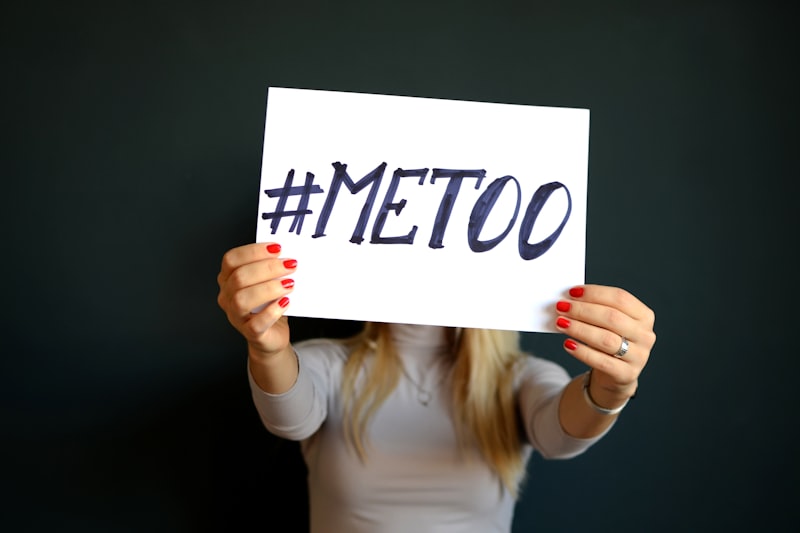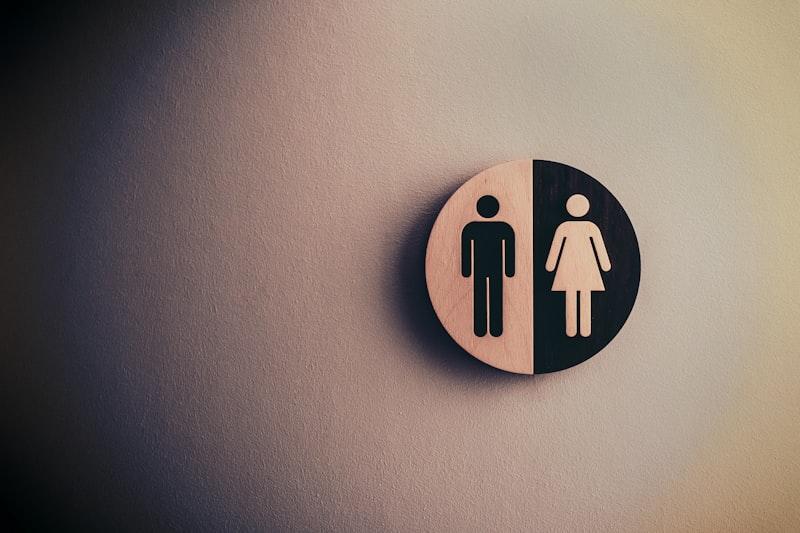- Harassment dreams can indicate unresolved trauma, repressed emotions, workplace stress, or relationship issues.
- Navigating through harassment dreams involves personal empowerment, self-reflection, seeking support, and establishing healthy coping mechanisms.
- Interpreting harassment dreams involves analyzing scenarios, symbols, emotions, and recurring patterns to gain insight into their meaning.
- Overcoming obstacles through dream interpretation requires journaling, self-analysis, seeking professional guidance if needed, and taking action in waking life.
Do you often wake up feeling uneasy after dreaming about harassment? It’s important to understand what your dreams are trying to tell you. Let’s explore the meaning of harassment dreams and gain insight into our subconscious thoughts.
Symbolism of Harassment Dreams

Here are some common themes and their symbolism in harassment dreams:
1. Chasing Scenes
One disturbing scenario in harassment dreams is being chased. This can evoke fear and a sense of being constantly monitored or pursued even in the dream state. It may stem from real-life fear of being sexually or physically assaulted by someone, which haunts the dreamer and manifests as a recurring dream theme. This type of dream symbolizes a deep-rooted fear that follows the dreamer in their waking life.
2. Attacks
Dreaming of being harassed and attacked symbolizes a sense of vulnerability and self-judgment. The dream portrays the dreamer as someone who feels powerless and full of criticism towards oneself. This scenario highlights the dreamer’s insecurity and perceived weaknesses.
3. Physical Harassment
If you dream of being physically touched inappropriately or forced to engage in socially unacceptable actions, it represents your trauma associated with physical abuse in real life. This dream signifies pent-up resentment, hidden anger, and feelings of violation against someone in waking life.
4. Childhood Trauma
Dreaming of a child being harassed reflects the setbacks and emotional baggage from past experiences in childhood. If you were a victim of physical harassment as a child, this dream may symbolize the lingering emotional burden that you continue to carry into adulthood.
5. Sexual Harassment
Sexual harassment dreams symbolize fear, insecurity, and threat in waking life. You may be feeling fearful and apprehensive due to dangerous or oppressive individuals who are mistreating you in different ways. This dream also represents an attempt by someone in waking life to dominate or overpower you in subtle ways.
6. Stranger Harassment
Dreams of being harassed by a stranger may indicate a lack of faith and trust in people you don’t know well in waking life. This apprehension towards strangers could be due to their questionable actions and misdeeds. These dreams reflect feelings of helplessness and vulnerability.
7. Domestic Harassment
Dreams of domestic harassment symbolize family issues, conflicts, and disagreements with loved ones in waking life. There may be unresolved conflicts within the family that are causing disappointment and distress. This dream theme often represents strained relationships with extended family members.
8. Public Place Harassment
Just like being naked in dreams, being harassed in public places symbolizes embarrassment, social shame, and fear of being in the spotlight. It reflects feelings of public scrutiny and a lack of privacy in waking life.
These are just a few examples of the symbolism behind harassment dreams. It is important to remember that dream interpretation is subjective and varies from person to person. The specific details and emotions experienced in the dream should be taken into consideration to gain a deeper understanding of its meaning for the individual dreamer.
Harassment With a Weapon

If you dream of being harassed with a weapon, it symbolizes your fear of unknown dangers in your waking life. The dream is trying to tell you that you need to be cautious about everything around you.
This dream represents your inability to trust anyone easily. You are always afraid that someone can harm you or take away something that is valuable to you.
1. Types of Weapons in Harassment Dreams
Some common types of weapons people dream of being harassed with, and their meanings, are:
| Weapon | Meaning |
|---|---|
| Gun | The dream represents sudden danger which is about to happen in the waking life. It can also be related to financial issues which could disrupt an individual’s life. |
| Knife | This dream suggests that there is interpersonal disharmony or mistrust which needs resolution. It could also reflect a relationship conflict. |
| Club/Mace | This dream symbolizes the possibility of getting into needless arguments with someone close to you in reality. It may also reflect situations where an individual feels cornered or attacked from all sides. |
| Bomb | The dream represents anxiety or fear over losing control over certain situations. It can represent internalized conflicts, repressed emotions, or other situations that feel out of control. |
2. Psychological Meaning
Psychologically, a dream of being harassed with a weapon indicates that the dreamer perceives themselves as vulnerable and powerless in waking life. It can reflect feelings of being under constant attack from outside sources which can cause long-term psychological damage.
The dreamer should try to acknowledge their inner strength and seek help from trusted friends and family members in order to gain better control over their life.
3. Spiritual Meaning
Spiritually, the dream of being harassed with a weapon represents a need for divine intervention and help. The dream is possibly asking the dreamer to seek spiritual guidance and assistance to overcome the negative forces that surround them.
4. What to Do If You Have Harassment Dreams Involving Weapons
If you are frequently experiencing dreams of being harassed with a weapon, it is important to take some steps in order to protect yourself. Here are a few things you can try:
- Reach out to a trusted friend or family member to share your concerns and seek support.
- Consider talking to a therapist or counselor who can help you work through your fears and explore what’s causing them.
- Learn some self-defense techniques or take a self-defense class.
- Create a safety plan for your waking life in the event that you feel threatened and need to protect yourself from harm.
Common Dream Scenarios and Their Interpretations

Dreams of harassment can take on various scenarios, each with its own symbolic meaning and emotional impact. Understanding common scenarios can help shed light on the deeper messages and themes within these dreams. Here are some of the most common scenarios of harassment dreams:
1. Workplace Harassment
One common scenario is experiencing harassment in the workplace. This may manifest as being belittled, bullied, or treated unfairly by colleagues or superiors. Workplace harassment dreams often reflect the stress and dissatisfaction one may feel in their professional life. It may be a sign that it’s time to address any issues or conflicts at work and find ways to establish healthy boundaries.
2. Cruelty and Intimidation
Dreams involving cruelty and intimidation can be particularly distressing. These scenarios may include physical or emotional abuse, threats, or acts of violence. Such dreams often symbolize feelings of powerlessness and vulnerability, as well as unresolved anger or resentment towards someone in waking life. It is important to address these emotions and seek support if needed to heal and move forward.
3. Harassment by Strangers
Being harassed by strangers in dreams reflects a lack of trust or a fear of the unknown in waking life. These scenarios often symbolize apprehension about new situations or people. It may be a sign to listen to your intuition and exercise caution when encountering unfamiliar individuals or circumstances.
4. Harassment by a Known Person
Dreaming of being harassed by someone you know can be unsettling, especially if it involves a friend, family member, or romantic partner. This scenario can represent unresolved conflicts or tensions in the relationship. It may indicate a need to confront these issues and establish healthier communication and boundaries in order to restore harmony.
5. Domestic Harassment
Dreams of domestic harassment typically involve conflicts within the family or extended family members. These dreams may symbolize unresolved disputes, strained relationships, or ongoing tensions. It may be a reflection of the need to address these issues openly and seek resolution for greater peace and harmony within the family unit.
6. Child Being Harassed
Dreams of a child being harassed can be deeply distressing. These dreams often reflect unresolved traumas or emotional wounds from childhood experiences. It may be a reminder to address and heal from these past hurts in order to move forward with emotional well-being as an adult.
7. Sexual Harassment
Dreams of sexual harassment indicate feelings of fear, insecurity, and vulnerability. These scenarios may symbolize real-life threats or a sense of being overpowered or dominated by others. It is important to listen to your instincts and assertively establish boundaries in your waking life to protect your well-being.
8. Harassment and Chasing
Being chased in a dream is often associated with feelings of fear and anxiety. When combined with harassment, these dreams can represent a persistent sense of danger or the feeling of being pursued by negative forces or past traumas. It may be a sign to confront and address these fears and anxieties head-on in order to regain a sense of safety and control.
9. Harassment and Attack
Dreams involving physical attacks or acts of violence can be particularly unsettling. These scenarios may symbolize underlying feelings of insecurity, low self-esteem, or a lack of personal power. It is important to recognize your own strengths and worthiness, as well as seek support if needed, to overcome these feelings and establish a sense of empowerment.
Gender Differences in Harassment Dreams

In this section, we will explore the gender differences in harassment dreams. It is important to note that harassment dreams can vary greatly from person to person, but there are some general patterns that can be observed. Understanding these differences can provide insight into the unique experiences and perspectives of men and women.
1. Men’s Perspective:
- Feeling Powerless
Men who dream of being harassed often experience a sense of powerlessness and helplessness. These dreams may reflect deep-seated emotional conflicts and anxieties related to their relationships in waking life. - Fear and Anxiety
These dreams can evoke feelings of fear and anxiety in men. They may represent their concerns about their ability to handle difficult situations or stand up for themselves in real-life interactions. - Lack of Self-Confidence
Harassment dreams can also symbolize a lack of self-confidence and a feeling of being trapped in their relationships. Men may feel like they are constantly under scrutiny or unable to assert themselves in their personal or professional lives. - Overcoming Adversity
On a positive note, harassment dreams can serve as a reminder for men to develop their inner courage and stand up against any form of harassment or mistreatment in their waking life. These dreams encourage men to assert themselves and overcome any obstacles they may face.
2. Women’s Perspective:
- Emotional Burden
Women who dream of being harassed often carry a heavy emotional burden in their daily lives. These dreams may reflect their fears, anxieties, and frustrations about the disturbances in their relationships or negative experiences they have encountered. - Feeling Trapped
Harassment dreams can represent a feeling of being trapped or controlled by others in women’s lives. They may symbolize a lack of power or agency in dealing with difficult situations or toxic relationships. - Seeking Empowerment
These dreams can serve as a wakeup call for women to recognize the intentions of others in their waking life. They encourage women to develop their inner strength, assertiveness, and self-confidence to resist and overcome any form of harassment or mistreatment. - Acknowledging Emotional Meltdown
Sometimes, harassment dreams represent an emotional meltdown that is difficult for women to acknowledge in their waking life. These dreams may highlight the need for women to address their emotional pain and seek support or therapy to heal from past traumas.
Harassment dreams can have different meanings for men and women. Men may experience feelings of powerlessness and lack of self-confidence, while women may feel trapped and carry emotional burdens. These dreams can serve as reminders for both men and women to stand up against harassment, develop their inner strength, and seek support when needed. Understanding these gender differences can help individuals navigate their own unique experiences with harassment dreams and gain insight into their waking life relationships.
Navigating Through Harassment Dreams

Harassment dreams can be distressing and unsettling, leaving us feeling anxious and confused upon waking up. However, by understanding the potential indications, exploring personal empowerment, interpreting the dreams, and overcoming obstacles through dream interpretation, we can navigate through these dreams and find meaning and resolution.
1. Potential Indications
Harassment dreams can indicate underlying emotions, fears, and unresolved issues. While the symbolism of these dreams can vary from person to person, there are some potential indications to consider:
- Unresolved Trauma or Fear
Harassment dreams may reflect past traumatic experiences or fears that have not been fully addressed. These dreams can serve as a reminder to confront and heal from these unresolved issues. - Repressed Emotions and Anxiety
Dreaming of harassment can be a manifestation of repressed emotions or anxiety that needs to be acknowledged and processed. These dreams provide an outlet for these emotions to surface and be addressed. - Workplace Stress or Bullying
Workplace stress or bullying can infiltrate our dreams as harassment scenarios. These dreams may highlight power dynamics, conflicts, and feelings of powerlessness within our professional lives. - Relationship Issues and Power Struggles
Harassment dreams can reflect unresolved conflicts, power struggles, or feelings of being controlled within our relationships. These dreams may symbolize the need for open communication and a reevaluation of boundaries.
2. Personal Empowerment
Navigating through harassment dreams involves personal empowerment and taking proactive steps towards resolution. Here are some strategies to consider:
- Self-Reflection and Awareness
Engage in self-reflection by journaling and exploring the emotions, symbols, themes, and patterns in your harassment dreams. By increasing self-awareness, you can gain insights into underlying fears, unresolved trauma, or ongoing challenges. - Seeking Support
Reach out to trusted friends, family members, or professionals to share your dreams and seek their understanding and guidance. Support from others can provide validation, empathy, and new perspectives on your harassment dreams. - Coping Mechanisms
Develop healthy coping mechanisms to deal with triggers that may be contributing to your harassment dreams. Practice stress-reduction techniques such as mindfulness, meditation, deep breathing, or engaging in activities that promote relaxation and positive mental well-being. - Communication and Boundaries
Address any unresolved conflicts or power struggles within your personal and professional relationships. Open and honest communication can help establish healthier dynamics and boundaries, reducing the likelihood of experiencing harassment dreams.
3. Interpretation
Interpreting harassment dreams involves analyzing the symbolism, scenarios, and emotions associated with the dreams. While the interpretation can be highly personal, here are some general considerations:
- Scenarios
Pay attention to the specific scenarios in your harassment dreams. Are you being chased, verbally attacked, or physically assaulted? Reflect on these scenarios and consider how they may relate to feelings of vulnerability, powerlessness, or unresolved conflicts in your waking life. - Symbols
Explore the symbolism in your harassment dreams. Symbols such as a dominant figure, invasion of personal space, or feeling trapped may have deeper meanings related to power dynamics and boundaries within relationships or work environments. - Emotions
Emotions experienced during harassment dreams can offer valuable insights into underlying fears or anxieties. Are you feeling fearful, helpless, or overwhelmed in the dream? Connect these emotions to your waking life experiences to gain a deeper understanding of their significance. - Themes and Patterns
Identify recurring themes or patterns in your harassment dreams. These patterns may point to unresolved issues or ongoing challenges that need attention and resolution in your wakeful life.
4. Overcoming Obstacles Through Dream Interpretation
Overcoming obstacles related to harassment dreams involves using dream interpretation as a tool for personal growth and resolution. Here’s how to apply dream interpretation to this process:
- Journaling
Keep a dream journal to record your harassment dreams, including the details, emotions, symbols, and scenarios. Regularly reviewing your journal entries can help you identify patterns and gain insights into the meaning behind your dreams. - Self-Analysis
Analyze your dream journal entries by reflecting on the emotions, symbols, and scenarios that reoccur. Consider how these elements may connect to your waking life experiences or unresolved issues. - Symbolic Interpretation
Interpret the symbolism in your harassment dreams by exploring the possible meanings behind specific symbols or scenarios. Consider how these symbols may reflect power dynamics, boundaries, or unresolved conflicts in your personal or professional relationships. - Seeking Professional Guidance
If you are struggling to interpret or navigate through your harassment dreams, consider seeking professional guidance. A therapist or dream analyst can provide additional support and help you explore the deeper meanings and implications of your dreams. - Taking Action
Apply the insights gained from your dream interpretation process to take action in your waking life. This may involve addressing unresolved conflicts, setting boundaries, seeking therapy or counseling, or making changes in your personal or professional relationships.
Remember that overcoming obstacles related to harassment dreams is a process that takes time and self-reflection. By applying dream interpretation techniques and seeking support when needed, you can navigate through these dreams and find resolutions that promote healing and personal growth.
Conclusion
Remember that your harassment dreams serve as a reminder that there are unresolved issues in your waking life that require your attention. Don’t ignore the message your subconscious mind is trying to convey, and instead, delve deeper into the hidden meanings behind your dreams. Take charge of your emotions and seek support and guidance on how to heal from past traumas, cope with stress, or mend relationships. Remember that it’s a journey, and every step you take towards understanding the message behind your harassment dreams leads you closer to personal growth and empowerment. So be kind to yourself, take things at your own pace, and know that you have the strength within you to overcome any obstacles you might face.










Leave a Reply